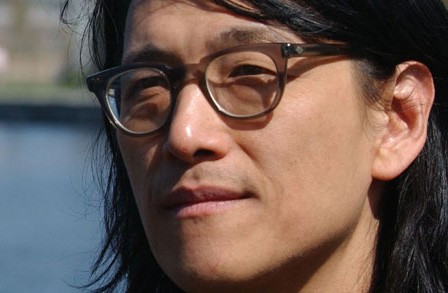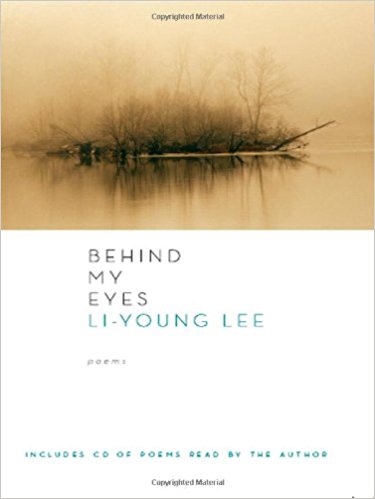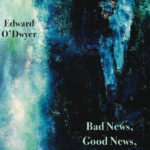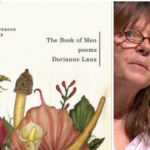Li-Young Lee’s Behind My Eyes
 I had a lot of driving to do today, and fortunately I remembered that I have this book, Li-Young Lee‘s Behind My Eyes (Norton, 2008), which includes a CD of the poet reading 22 of the poems. So I listened (a lovely experience), and read, too, and eventually made it through the entire book — and it’s 10:30 in the evening (on the 12th, which I thought all day was the 11th) — and I’m exhausted, and I’m very happy to have this book to recommend to you.
I had a lot of driving to do today, and fortunately I remembered that I have this book, Li-Young Lee‘s Behind My Eyes (Norton, 2008), which includes a CD of the poet reading 22 of the poems. So I listened (a lovely experience), and read, too, and eventually made it through the entire book — and it’s 10:30 in the evening (on the 12th, which I thought all day was the 11th) — and I’m exhausted, and I’m very happy to have this book to recommend to you.
This book was given me by a friend, and I swear, I have read it, or read around in it. But I had never sat down and read it all the way through. And I had never been deliberate enough to take the CD out to the car (where I do my book-listening) and actually play it.
I know Li-Young Lee’s work mostly from a “greatest hits” perspective. Reading an entire book of his poetry is a quite different experience. Some of the poems seem remarkably un-poetic, sort of colloquial and mundane. “Self-Help for Fellow Refugees,” for instance, ends with this stanza: “Alone in your favorite chair / with a book you enjoy / is fine. But spooning / is even better.” Had I read just this poem (or such lines), I would have set the book aside with a shrug. But, tasked to read on, I encountered many powerful lines.
Let me say, however, that I think I have a lot of nerve critiquing Lee’s work. He is a master.
And the effect of a book is partly cumulative, of course (as I hope I’ve noted in earlier posts this month). Imagine finding just one Emily Dickinson poem and trying to understand why other people spend their entire life studying her. Anyway, in Lee’s “My Favorite Kingdom,” I found this little sequence of images, which is both simply put and swoon-worthy:
My favorite color is
my father’s apple trees in the rain.
My favorite color
is my father’s pear trees
in a cloud of bees.
So, who really knows what makes one reader yawn, and another sit up straight and listen harder? One has to take the time to sit with a poet to begin to appreciate them properly.
Here is a short poem that — listening to the CD — I knew I had to see on the page. It (too) is deceptively simple, but evocative of so much more.




Leave a Reply
Want to join the discussion?Feel free to contribute!